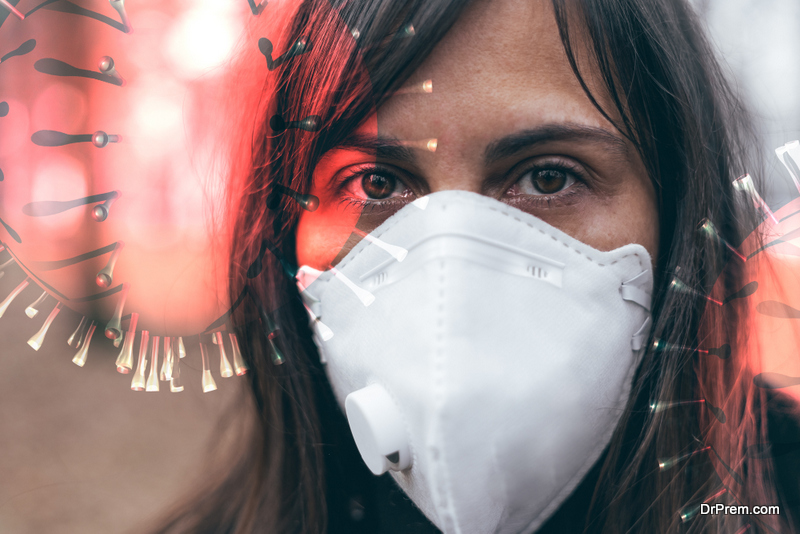A lot of people feel panicked and stressed right now and for good reason. There’s a virus on the loose. Fortunately, the latest data shows us that people with a healthier immune system are much more likely to survive the coronavirus if they do contract it.
Here are some methods that people around the world are using to improve immunity and overall wellbeing during this time.
1. Fitness
 Since we’re encouraged to stay home, a lot of us are becoming sedentary. But, if your goal is to keep stress levels down and your health up, then you should definitely look into the benefits of exercise. It’s an excellent way to de-stress and maintain one’s sanity, while strengthening the body from the inside out.
Since we’re encouraged to stay home, a lot of us are becoming sedentary. But, if your goal is to keep stress levels down and your health up, then you should definitely look into the benefits of exercise. It’s an excellent way to de-stress and maintain one’s sanity, while strengthening the body from the inside out.
You don’t have to buy a lot of expensive equipment to exercise at home. You can achieve the same goal with simple things like a chair, a step, and some light bands. You can use a wall to do a wall-sit, your body weight to do a plank or a push-up, or a simple step for step-ups.
You could also grab a can of soup from the pantry, a bottle of water or a 2-pound bag of flour to do strengthening resistance exercises.
2. Taking a Proactive Approach to Health
Instead of sitting back waiting for bad things to happen, smart people are taking proactive steps to boost their immunity and protect their health. Practices like daily exercise, increasing one’s intake of fruits and vegetables, getting lots of sunshine and taking supplements like Vitamin D3, Vitamin C, zinc and even collagen, can go a long way to boost one’s health.
3. Moving Away from the Cities
 A lot of people are convinced that COVID-19 is the beginning of a protracted crisis that will most likely last for many years to come. Considering the fact that lockdown went from a proposed two-week to a four-month (and counting) phenomenon in most places, it’s easy to see where this assumption comes from.
A lot of people are convinced that COVID-19 is the beginning of a protracted crisis that will most likely last for many years to come. Considering the fact that lockdown went from a proposed two-week to a four-month (and counting) phenomenon in most places, it’s easy to see where this assumption comes from.
As a result of this uncertainty, there’s a wide-spread exodus away from crowded cities to live off-grid in areas with fewer people, more land and more resilient communities.
4. Self-Sufficiency
People are looking for ways to become self-sufficient and live off-grid because, if this crisis has taught us anything, it’s how fragile our production chains can be. For instance, you’ve got farmers, meat packers, distributors and logistics companies all dependent upon the same supply chain.
When one of these elements is affected, the whole system comes crashing down and you end up with things like meat rationing.
To get away from complex systems that are susceptible to shock and uncertainty, people are growing their own food, planting herbs, vegetables, fruit trees and flowers in an act of resilience. Although it’s a long process and difficult to achieve autonomy, it is possible.
Plus, there’s something so empowering about a way of life and production that doesn’t require you to rely on an external network to satisfy your essential needs.
The key to self-sufficiency is to be a generalist and not a specialist. This means that you have to develop a wide breadth of skills and capabilities as opposed to focusing on one expertise. Minimalism also makes it easier to be self-sufficient because it requires you to adopt a simple system where you can get all of your needs fulfilled through a close-knit local network.
5. Practicing Gratitude
 Gratitude has been shown to improve our overall sense of well-being and joy because it releases positive endorphins to the bloodstream and connects us to the heart.
Gratitude has been shown to improve our overall sense of well-being and joy because it releases positive endorphins to the bloodstream and connects us to the heart.
The best part is that if you’re reading this, then you have plenty to be grateful for. You can be grateful for having access to the internet, the ability to read, the clothes on your back, a bed to sleep on, food to eat and your family’s health. Focus on that gratitude in the morning and before you go to sleep to relieve any stress that you might feel through the day and your body will thank you for it.
6. Get Back to Basics
One of the best things you can do to reduce stress is to keep your life simple and take things one day at a time. If you’re currently in lockdown and can’t leave the place where you are, try to create a routine. Get up at the same time every day, exercise, read a book and talk to people. Call your friends, family members and your colleagues.
By focusing on what you have control over, it’s much easier to avoid stress, which in turn helps to keep your immunity up.
Whether you’re growing your own food for the first time, meditating for 10 minutes each day or eating healthier than before, this crisis is a great opportunity to develop healthy habits that’ll serve us now and in the future.
Article Submitted By Community Writer




